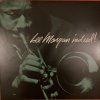Fiftyfifty
Well-Known Member
That was wonderful @moktan ! Both songs performed so evocatively. I hadn't heard Jimmy Greene before and this is a discovery for me. I am often disappointed when listening to a new artiste, because maybe with age, I have stopped enjoying music that is unfamiliar and does not conform to my definition of how jazz should sound. But not this time. I enjoyed this and will look up the album.
Billie Holiday, as we all know, is another legend in the list of those who left us too soon. One of the greatest influences on American music, died of liver disease at 44. Cheated in love, cheated in business and addicted beyond repair - a tragic life that sometimes reminds me of our own star Meena Kumari, who too died of liver disease. As she lay dying, Billie's hospital room was raided and she was placed under police guard, arrested and handcuffed for drug possession. In her final years, she had been progressively swindled out of her earnings, and she died with $0.70 in the bank and $750, which was a tabloid fee, on her person. (@rikhav )
So it goes..........
Billie Holiday, as we all know, is another legend in the list of those who left us too soon. One of the greatest influences on American music, died of liver disease at 44. Cheated in love, cheated in business and addicted beyond repair - a tragic life that sometimes reminds me of our own star Meena Kumari, who too died of liver disease. As she lay dying, Billie's hospital room was raided and she was placed under police guard, arrested and handcuffed for drug possession. In her final years, she had been progressively swindled out of her earnings, and she died with $0.70 in the bank and $750, which was a tabloid fee, on her person. (@rikhav )
So it goes..........








